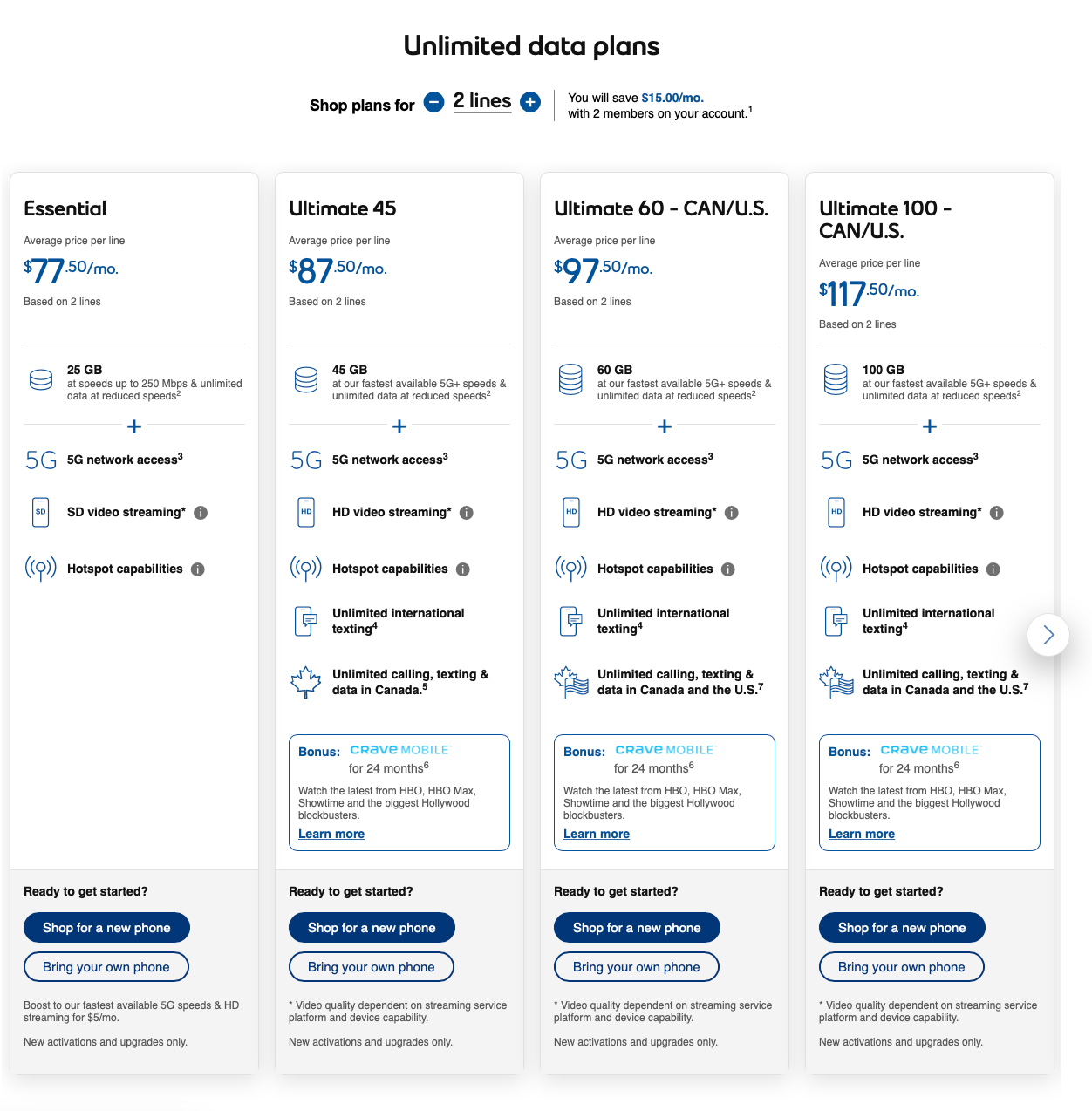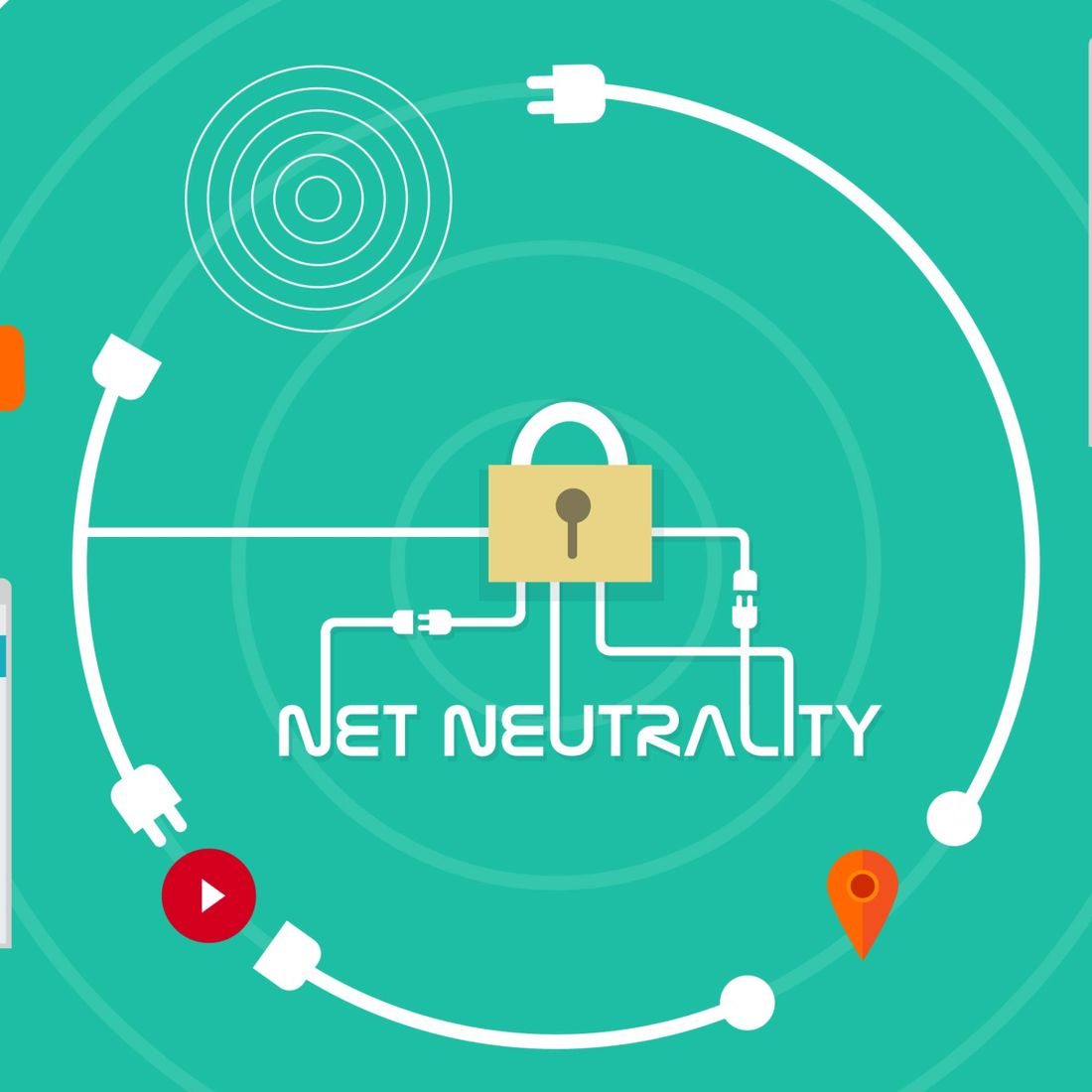Earlier this week I saw a thread on Reddit pointing out that Bell Mobility has started limiting access to HD video streaming on its 5G plans, with access HD video being offered as a $5 upsell on select plans. Here is a screenshot from the Bell website showing that the "Essential" plan only allows access to SD video, while all the high priced plans offer access to full HD quality video streaming:

Redditor anthpere confirms the plans are in fact limiting video streaming, quote "i’m currently on a 5G plan with bell and they limit my video streaming to 480p on all streaming services including youtube and even limit my speed to 250mbps. But there’s an add on they offered me in the bell app that gives me full 5G speed and HD streaming for +$5/mo and it works well. so i decided to do this instead of opting for a more expensive plan just for HD streaming and higher speeds"
The question posed by others in the reddit thread, and the question I hope to answer is "is this a violation of the CRTC rules on network neutrality?"
For background, in 2017, the CRTC established a framework for assessing the differential pricing practices of Internet service providers. The background of the decision came from the Videotron "Unlimited Music" add-on which allowed Videotron customers to access various online music services without it being counted against their data cap. In paragraph 27 of that decision, the CRTC found that "the functions performed by ISPs to establish data connectivity and provide transport over their networks are the same regardless of whether the content being transported is part of a differential pricing practice or not". In the same decision, the CRTC set out four criteria to determine if a differential pricing practice is compliant with subsection 27(2) of the Act:
The agnostic treatment of data:
From the decision, "the Commission will give primary consideration to the agnostic treatment of data, since differential pricing practices that favour certain content at the expense of other content have the greatest potential for harm". So in the case of the Bell offering, the plan definitely fails this test as differencing HD vis SD video streaming is in no way the agnostic treatment of data.
The exclusiveness of the offering:
"The Commission will consider the extent to which a differential pricing practice is exclusive to a particular class or group of subscribers, or to a particular content provider or class or group of content providers, while also having regard to the number of subscribers or content providers affected. For example, differential pricing practices that are exclusive to subscribers to a particular data plan are likely to raise concerns under subsection 27(2)."
Bell is in clear violation of this provision as the ability to watch HD video is tied to a specific data plan or add-on subscription.
The impact on Internet openness and innovation.
"The Commission will consider the extent to which a differential pricing practice inhibits or compromises the openness of the Internet for Canadians and the choices available to Canadians"
The Bell offering doesn't appear to contravene this directive as users can still access the content, albeit at a lower quality. One could argue that is enough of an impact as to cause harm but that would be a stretch in my mind.
Whether there is financial compensation involved
"The Commission will consider whether a differential pricing practice results in financial compensation or other financial benefits between a content provider and an ISP or third-party sponsor"
Since the video quality limitations appear to apply to all content providers equally it is highly unlikely Bell is receiving any financial compensation from a third party and they are not in violation of this provision.
Conclusion
So upon reviewing the four principals of the CRTC framework, Bell would appear to be violating the CRTC 2017-104 policy as they failed the first and second tests, but it may not be that simple as the devil is always in the details. In the 2017-104 decision, the focus was on plans like the Videotron Unlimited Music plan that differentiated traffic based on the category of the content, but the decision did not take into consideration the idea of a plan that offers access to the same content but at a different quality level. I would argue it still does violate the policy as the fundamental function of an ISP is to move bits, not to limit what bits can be accessed. In the case of the "Essential" plan, a customer should be able to access 25GB of "bits" regardless of what those bits are - be it HD video, music, gaming, or just simple web browsing. Further, users have pointed out that in the Reddit thread that this network level filtering can easily be bypassed through the use of a VPN service, which makes sense given that Bell would not be able to inspect the traffic inside of a VPN session. So this makes this 100% a "cash grab" from Bell to get extra money from users with no technical justification.
Maybe I'll file an application with the CRTC and see where it goes - if we as Canadians really want an open internet then we need to ensure that policies like this are not allowed and that all bits are truly treated as equal.

Comments